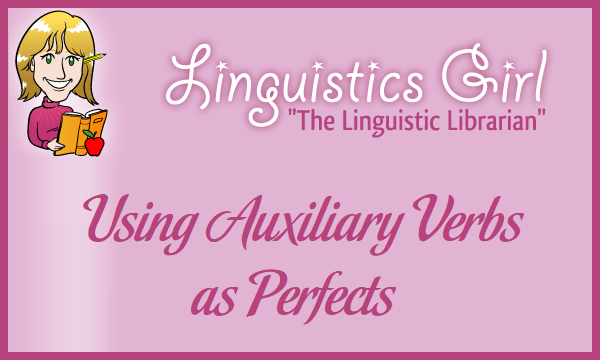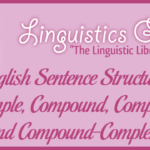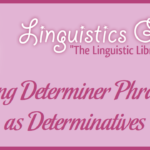Verbs are traditionally defined as words that “described an action or a state.” Auxiliary verbs are a subclass of verbs that add functional or grammatical meaning to the main verb. Auxiliary verbs differ from prototypical verbs in that auxiliary verbs perform a limited set of grammatical functions.
In grammar, a perfect is a word that expresses the perfect aspect in the English language. The auxiliary verb that can function as the perfect is the verb have, which is referred to as the perfect have. Do not confuse the perfect have with the main have (possession) or the catenative have (obligation) For example, the following italicized auxiliary verbs function as perfects:
- I have finished writing my book.
- She has borrowed the class notes.
- We have never traveled to Europe.
- He had just stepped in the shower when the phone rang.
- The kittens had been weaned weeks before.
- My daughter had been being watched by my parents.
Auxiliary Verb as Perfect
References
Brinton, Laurel J. & Donna M. Brinton. 2010. The linguistic structure of Modern English, 2nd edn. Amsterdam: John Benjamins Publishing Company.
Hopper, Paul J. 1999. A short course in grammar. New York: W. W. Norton & Company.
Huddleston, Rodney. 1984. Introduction to the grammar of English. Cambridge: Cambridge University Press.
Kilby, David. 1984. Descriptive syntax and the English verb. Dover, New Hampshire: Croom Helm.
Leech, Geoffrey N. 2004. Meaning and the English verb. Harlow, English: Pearson Longman.




